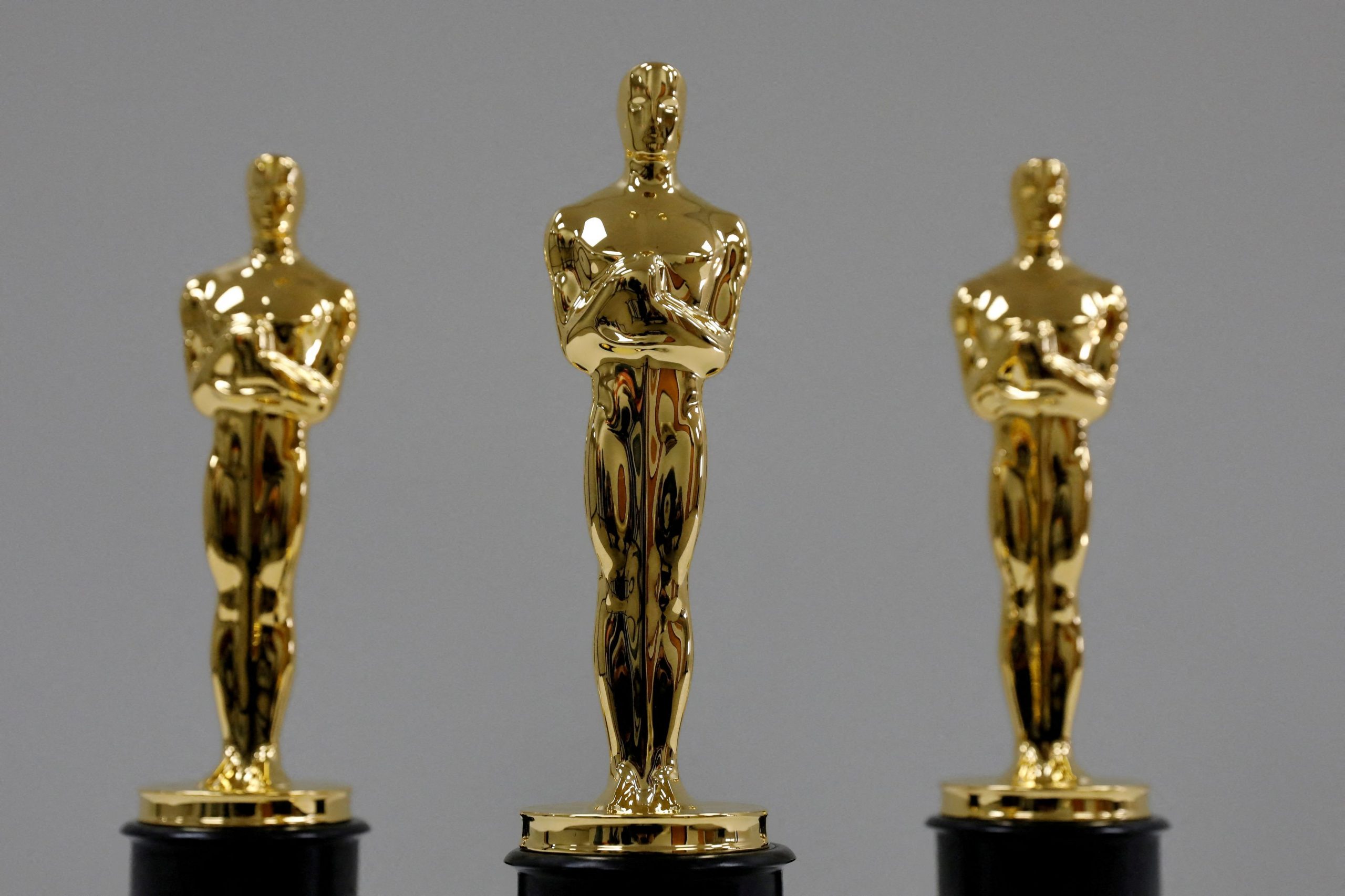And the Oscar goes to…the least offensive film?
Controversies, gripes and debates about moviemaking are engulfing this year’s Academy Awards race, threatening some of the most promising contenders. Among them:
“Emilia Pérez”: Netflix’s Spanish-language movie musical about a transgender drug lord spoke to Hollywood’s ideals of tolerance. Then old tweets by star Karla Sofía Gascón, the first openly trans person to receive a best actress nomination, emerged in which she called Islam “a deep disgust of humanity,” referred to George Floyd as “a drug addict swindler” and supported banning religions that “go directly against European values.”
“The Brutalist”: A 3½ hour film about a Hungarian-Jewish architect who flees to the U.S. was hailed as an Oscar comeback for best actor nominee Adrien Brody. But after an interview with the movie’s editor revealed that artificial intelligence was used to perfect pieces of his Hungarian dialogue in the film, a performance praised for its authenticity suddenly didn’t seem to some observers, strictly speaking, 100% authentic.
“I’m Still Here” : When it was revealed that best actress nominee Fernanda Torres appeared in a TV skit in blackface nearly two decades ago, her apology was swift. Fervent Brazilian fans stood by her. But it added a hurdle to the awards quest for the film about a dissident’s disappearance in 1970s Brazil.
“Anora”: Best actress nominee Mikey Madison chose not to use an intimacy coordinator for her humanizing portrayal of a sex worker, prompting pushback from some who’ve spent years trying to normalize that behind-the-scenes role. Madison has said she made the choice because she wanted to immerse herself in the performance. Intimacy coordinators, not mandated on set by unions, were used in other steamy 2024 films, such as “Babygirl,” whose star Nicole Kidman drew a noted Oscar snub.
Hollywood Is in Crisis
This year’s Academy Awards were supposed to shine a festive light on a besieged Hollywood. Instead the run-up to the ceremony has reflected the movie industry’s existential angst, sparking debate over knotty issues including separating art from artist, determining the role of AI in film and navigating the sexual politics that emerged after #MeToo.
“Hollywood is in crisis,” says University of California, Los Angeles, film historian Jonathan Kuntz. “It’s not at the center of things like it was for almost a century.”
The worldwide box office gross fell nearly 20% to about $21.7 billion last year after the brief “Barbenheimer” reprieve in 2023. And the industry is still struggling to regain its footing after strikes by writers and actors in 2023 that paralyzed much of the entertainment community, a pandemic that shut down film and TV productions and ongoing threats to theatrical moviegoing by streaming.
Star power at the Academy Awards is also endangered: Members of what some call a dying breed of high-wattage celebrities—such as Denzel Washington, Angelina Jolie and Daniel Craig—were not nominated this year. To top it off, Los Angeles is only just starting the long recovery from brutal wildfires.
Oscars, What Are They Good For?
In general, the mood surrounding many of this year’s best picture contenders is one of cranky questioning. Why did “Wicked” plant a gazillion tulips but no poppies? Is “The Substance” really a feminist allegory if it sexualizes women’s bodies? Did the Bob Dylan biopic “A Complete Unknown” play too loose with folk-history facts? Was “Conclave” insulting to real-life Catholic church leaders? Did “Dune: Part Two” have too many famous people? Could the first-person camerawork of “Nickel Boys” have been less…artsy?
All this angst is over movies many people didn’t even see. The 10 best picture nominees earned $1.76 billion at the global box office in 2024, a 39% drop from the Barbenheimer-fueled totals the previous year. (Each year included a contender from Netflix, which does not release box office-equivalent data.)
Even awards show viewership itself is in peril. Just over a decade ago, more than 43 million people tuned in for the Oscars. Last year, the figure reached 19.5 million on Oscar night. The Academy of Motion Picture Arts and Sciences, which oversees the Oscars, declined to comment.
The contingent of Hollywood insiders following every burp and gurgle of awards drama has shrunk in recent years. The Academy is younger and more international than in the past, with about 2,000 of its roughly 9,900 voting members now located outside the United States. Final Oscar voting begins Tuesday and ends Feb. 18.
Nominations can also bring increased scrutiny. In Oscar years without a clear front-runner, like this one, negative stories can emerge months after a film’s release.
Still, a win matters, and every year studios pour millions of dollars into promoting their Oscar contenders. A gold statuette not only conveys prestige, but brings higher paydays for actors, bigger cuts for agents and greater bargaining power for a film’s future dealmakers. “It’s a celebration,” said Tom Nunan, co-executive producer of “Crash,” which won best picture in 2006. “It’s forever.”
Netflix in Damage Control
Netflix, which has yet to win a coveted best picture trophy, is credited with amping up Oscar campaigning in recent years . The threats the streamer poses to traditional moviegoing alone were enough to push some voters against it despite its several best picture nominations.
“Emilia Pérez,” a movie whose transgender focus connected to the current American political moment, secured 13 Oscar nominations and four Golden Globe wins, more than any other film on both counts. Netflix was in the running in a big way.
Now Netflix is in damage-control mode, distancing itself from Gascón, who made a tearful apology “to everyone who may have felt offended by the way I express myself in the past, present and future.” She was not expected to attend awards events in Los Angeles this week. On Monday, Netflix unveiled a “For Your Consideration” advertisement directed at Oscar voters that removed images of Gascón. The streamer’s marketing has pivoted toward supporting actress nominee Zoe Saldaña, the race for original song and other categories. No Netflix executives have commented publicly on the controversy. Netflix declined to comment for this article, as did representatives for Gascón.
The AI Dilemma
Another front-runner, “The Brutalist,” has been dogged by escalating fears of AI hanging over the movie industry. Concerns about the technology replacing jobs were at the center of the strikes that paralyzed Hollywood for months.
Some Oscar experts say the fact that AI touched performances in “The Brutalist” raises enough questions about exactly what was real and what wasn’t to threaten the awards chances for Brody and supporting actress contender Felicity Jones. But others say the AI issues are too minor, involving just five minutes of a 215-minute movie, and they note that this film is hardly the only one using the emerging technology.
“The upset about Adrien Brody’s Hungarian accent in ‘The Brutalist’ is a worry on the part of the audience that the people they are reacting to on-screen are increasingly hybrids created in postproduction,” says Clay Shirky, vice provost for AI and technology in education at New York University. “And on the part of people who work on films, there is a worry that all filmmaking becomes a form of animation, where actors, set, lighting, set dressing, costumes, all of it, becomes increasingly generated rather than captured on set or location.”
“Adrien and Felicity’s performances are completely their own,” director Brady Corbet said in a statement, adding that AI only was used to make certain vowels and letters accurate.
All this criticism could be noise, or it could hit hard on Oscar night. Rancor that can consume the run-up to the Oscars doesn’t always sway determined—and anonymous—Academy members.
“There are always little scandals every year that really mess up a movie’s chances,” says producer Nunan, who teaches at UCLA’s graduate school of theater, film and television. “Sometimes it works and it will decapitate a movie, and sometimes it doesn’t make any difference.”
Write to Ellen Gamerman at ellen.gamerman@wsj.com



